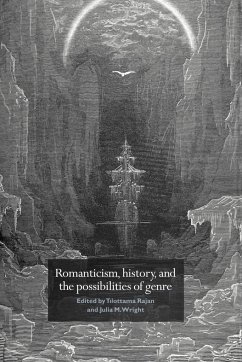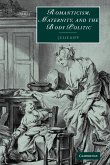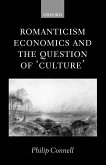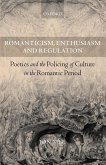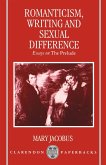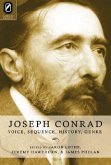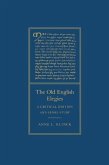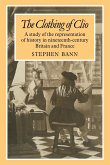Leading scholars of Romanticism explore the relationship between ideology and literary genre.
Romanticism has often been associated with the mode of lyric, or otherwise confined within mainstream genres. As a result, we have neglected the sheer diversity and generic hybridity of a literature that ranged from the Gothic novel to the national tale, from monthly periodicals to fictionalized autobiography. In this volume leading scholars of the period explore the ways in which the Romantics developed genre from a taxonomical given into a cultural category, so as to make it the scene of an ongoing struggle between fixed norms and new initiatives. Focusing on non-canonical writers (such as Thelwall, Godwin and the novelists of the 1790s), or placing authors such as Wordsworth and Byron in a non-canonical context, these essays explore the psychic and social politics of genre from a variety of theoretical perspectives, while the introduction looks at how genre itself was rethought by Romantic criticism.
Review quote:
"The essays collected in Romanticism, History, and the Possibilities of Genre are a welcome sign of a renewed interest in the complex interaction of literature, history, and ideology during the Romantic period. This superb collection of essays significantly advances both the theory and practice of genre criticism."
Alan Bewell, Letters in Canada
Table of contents:
Notes on contributors; Acknowledgments; Introduction Tilottama Rajan and Julia M. Wright; Part I. Genre, History, and the Public Sphere: 1. Godwin and the genre reformers: on necessity and contingency in romantic narrative theory Jon Klancher; 2. Radical print culture in periodical form Kevin Gilmartin; 3. History, trauma, and the limits of the liberal imagination: William Godwin's historical fiction Gary Handwerk; 4. Writing on the border: the national tale, female writing, and the public sphere Ina Ferris; Part II. Genre and Society: 5. Genres from life in Wordsworth's art: Lyrical Ballads 1798 Don Bialostosky; 6. 'A voice in the representation': John Thelwall and the enfranchisement of literature Judith Thompson; 7. 'I am ill-fitted': conflicts of genre in Elisa Fenwick's Secresy Julia M. Wright; 8. Frankenstein as neo-Gothic: from the ghost of the couterfeit to the monster of abjection Jerrold E. Hogle; Part III. Genre, Gender, and the Private Sphere: 9. Autonarration and genotext in Mary Hays' Memoirs of Emma Courtney Tilottama Rajan; 10. 'The science of herself': scenes of female enlightenment Mary Jacobus; 11. The failures of romanticism Jerome McGann; Index.
Romanticism has often been associated with the mode of lyric, or otherwise confined within mainstream genres. As a result, we have neglected the sheer diversity and generic hybridity of a literature that ranged from the Gothic novel to the national tale, from monthly periodicals to fictionalized autobiography. In this volume leading scholars of the period explore the ways in which the Romantics developed genre from a taxonomical given into a cultural category, so as to make it the scene of an ongoing struggle between fixed norms and new initiatives. Focusing on non-canonical writers (such as Thelwall, Godwin and the novelists of the 1790s), or placing authors such as Wordsworth and Byron in a non-canonical context, these essays explore the psychic and social politics of genre from a variety of theoretical perspectives, while the introduction looks at how genre itself was rethought by Romantic criticism.
Review quote:
"The essays collected in Romanticism, History, and the Possibilities of Genre are a welcome sign of a renewed interest in the complex interaction of literature, history, and ideology during the Romantic period. This superb collection of essays significantly advances both the theory and practice of genre criticism."
Alan Bewell, Letters in Canada
Table of contents:
Notes on contributors; Acknowledgments; Introduction Tilottama Rajan and Julia M. Wright; Part I. Genre, History, and the Public Sphere: 1. Godwin and the genre reformers: on necessity and contingency in romantic narrative theory Jon Klancher; 2. Radical print culture in periodical form Kevin Gilmartin; 3. History, trauma, and the limits of the liberal imagination: William Godwin's historical fiction Gary Handwerk; 4. Writing on the border: the national tale, female writing, and the public sphere Ina Ferris; Part II. Genre and Society: 5. Genres from life in Wordsworth's art: Lyrical Ballads 1798 Don Bialostosky; 6. 'A voice in the representation': John Thelwall and the enfranchisement of literature Judith Thompson; 7. 'I am ill-fitted': conflicts of genre in Elisa Fenwick's Secresy Julia M. Wright; 8. Frankenstein as neo-Gothic: from the ghost of the couterfeit to the monster of abjection Jerrold E. Hogle; Part III. Genre, Gender, and the Private Sphere: 9. Autonarration and genotext in Mary Hays' Memoirs of Emma Courtney Tilottama Rajan; 10. 'The science of herself': scenes of female enlightenment Mary Jacobus; 11. The failures of romanticism Jerome McGann; Index.

